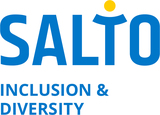Preparing the Young People
For many of the young people this will be their first experience going abroad. They will have certain fears but also certain expectations. It's important to deal with those. This means spending sufficient time to exchange and discuss the images, the fears and the expectations they have. A clear picture about what is going to happen during the Youth Exchange or European Voluntary Service-project is essential especially for this target group. It might also be important to tell them what a Youth Exchange or European Voluntary Service-project is 'not' to take away false expectations.
The involvement of young people in the preparations and programme is vital in this phase. The European Voluntary Service volunteers need to feel that they are planning their own programme. They should be the main actor in the communication with their hosting organisation and mentor, assisted by their supervisor.
As described in the chapter before there are numerous ways to involve young people in the preparation of a Youth Exchange. The main purpose should be, as much as possible, to make participants feel it's their project, 'owned' by them.
In European Voluntary Service-projects but also in Youth Exchanges and Youth Initiatives it's important to work on individual preparation of the young people focussing on the question: 'What do I want to get out of this?' To sit down with the young people to make their individual action or learning plan. This plan can function as a guideline during the project and as well as a tool for evaluation and self-assessment.
^^ top ^^
Exercises: Collecting needs and setting objectives with the young people
For young people it's often not easy to express wishes and needs. They are not used to setting objectives for themselves. When you ask them directly what are their wishes, often you will not get an answer.
Nevertheless you want to come to a programme according to their needs which makes it crucial to find out what these needs are. Here some suggestions and ideas that could help you to assist the young people to express his/her needs.
A session on talking about needs could be based on:
- wishes expressed by the young people at that moment
- wishes expressed by the young people in the past
- suggestions from family and friends or support staff
- suggestions from the supervisor
- outcomes from exercises like 'In Ten Years' and 'My Web'
Try to involve the different aspects of life: school, family, work, friends, free-time etcetera.
In Ten Years
Although it's mostly difficult to express wishes on the long term many young people have an idea about how they want to look their life like in ten years. In this exercise you start to ask questions about 'your life in ten years'.
- How do you live then?
- With whom will you live?
- How will you spend your evening?
- Who will be your friends?
- What does your day look like?
- What will be then important issues for you?
- ...
It gives the young people the opportunity to fantasize freely about life in ten years. When having that future picture you ask what that means for life in five years. What are the consequences of the picture you made of your life in ten years for your life in five years? Then you ask the same questions about 'life in two years'.
In that way you slowly work towards short-term and medium-long term needs and objectives.
My Web
'My Web' is a tool to help the young people to 'map' his/her network and to see what are important persons in the young people's life. Persons that can also be of great value when it comes to assistance and support for the young people when making plans. Involving VIPs (Very Important Persons) can be a successful way to keep young people on track when aiming for new steps in life. 'The Web' can be a starting point to see who are the persons that play an important role in the young people's life.
After having 'drawn the map' a conversation can start about the different relationships.
Making an Individual Action Plan:
- Aims should be the aims of the young people, not wishes of others
- Aims should be realistic and achievable, favourable in short term. Divide big vague aims in smaller achievable objectives.
- It must be possible to evaluate the aims, so that the young people can see the progress.
- Formulate the aims in a positive way. (not: 'I don't want to ...' but 'I want to...')
- Try to choose aims that are close to the competences of the young people.
- Combine short-term and long-term aims. (it feels good to achieve something already after a short time)
- Combine different kind of aims. (e.g. aims relating to attitude and aims relating to skills)
For more information on Intercultural Learning, download the T-Kit on Intercultural learning from www.youth-partnership.net and www.SALTO-YOUTH.net/toolbox/ - as well as the All Different All Equal Education Pack.
Looking for methods for expectations & young people: check the SALTO toolbox at www.SALTO-YOUTH.net/toolbox/
- Or share your suggestions for preparing young people below (log in with your SALTO username or create one)
^^ top ^^
 www.salto-youth.net/
www.salto-youth.net/
NoOffence/


 Protected from exclusion
Protected from exclusion
Downloads
The following downloads are available:
- No Offence - projects with (ex) offenders - 2010 update
How to organise (international) youth projects with young offenders, ex-offenders and young people at risk of offending or currently in prison - despite some limitations. Based on SALTO TC No Offence 2006.
